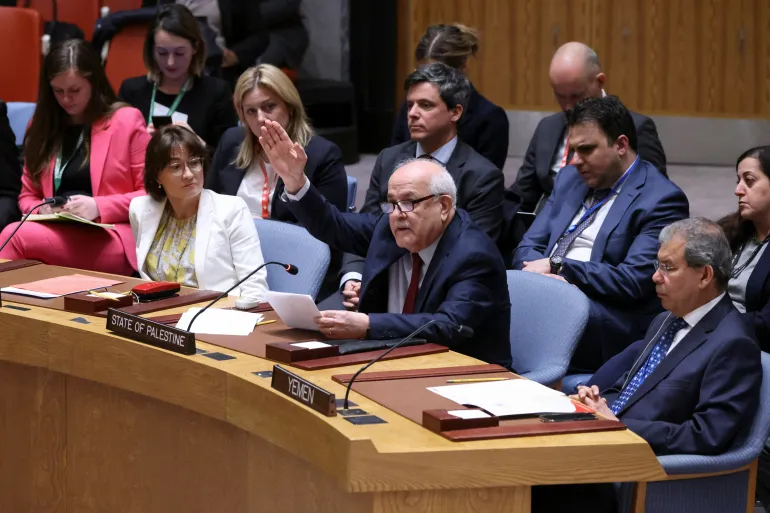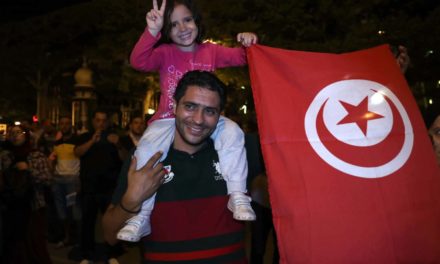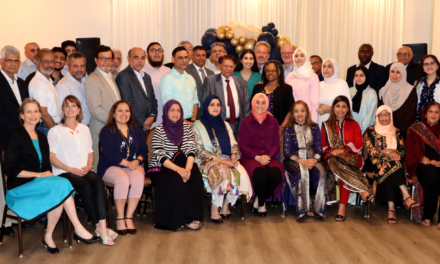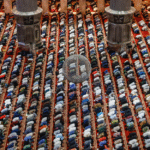Riyad Mansour, the Palestinian ambassador to the United Nations, addresses the UN Security Council on the day of a vote on a Gaza resolution [Andrew Kelly/Reuters]
Many world leaders have welcomed a United Nations Security Council (UNSC) resolution that demands an immediate ceasefire between Israel and the Palestinian group Hamas in Gaza.
While the United States abstained from the vote on Monday, the remaining 14 council members voted for the resolution.
Many world leaders have welcomed a United Nations Security Council (UNSC) resolution that demands an immediate ceasefire between Israel and the Palestinian group Hamas in Gaza.
While the United States abstained from the vote on Monday, the remaining 14 council members voted for the resolution.
The resolution, which the US said it did not agree with in its entirety, calls for an “immediate ceasefire” for the duration of the Muslim holy month of Ramadan, which ends in two weeks. It calls for the ceasefire to lead to a “lasting” truce, for the release of all hostages held by Hamas in Gaza, and for respect for international law from each party when it comes to detainments.
Here are some reactions from key officials around the world:
Palestinian Ministry of Foreign Affairs
The ministry said that adopting the resolution is a step in the right direction to end the five-month war, to allow the entry of aid, and to begin the return of those displaced.
The ministry also called on UNSC member states to fulfill their legal responsibilities to implement the resolution immediately. The ministry stressed the importance of achieving a permanent ceasefire that extends beyond Ramadan – along with securing the entry of aid, working to release prisoners, and preventing forced displacement.
Fatah Central Committee member Sabri Saidam
Saidam said the resolution “is a step in the right direction leading towards the end of the ongoing massacre in Palestine”.
“The consensus we witnessed today should pave the way for the full recognition of the much-delayed rights of the Palestinians and independence of the State of Palestine,” Saidam told Al Jazeera.
Hamas official Basem Naim
The Palestinian group Hamas said it was committed to the conditions of the resolution and said Israel must be held accountable in adhering to it.
“It is the role of the international community to oblige Israel and to end this double standard,” Basem Naim, a senior official in Hamas’s political bureau, told Al Jazeera.
“The question is ‘How strong is the international community to oblige Israel to implement this resolution?’” he said.
The group also stressed the necessity of reaching a permanent ceasefire that leads to the withdrawal of all Israeli forces from the Gaza Strip, and affirmed its readiness to engage in an immediate exchange process that leads to the release of prisoners on both sides.
Israeli ambassador to the UN Gilad Erdan
Erdan said the resolution failed to demand a ceasefire without “conditioning” it on the release of captives in Gaza, saying it “undermines the efforts to secure their release”.
“It is harmful to these efforts because it gives Hamas terrorists hope to get a ceasefire without releasing the hostages. All members of the council … should have voted against this shameless resolution,” he said.
Israeli Prime Minister Benjamin Netanyahu
Shortly after the resolution passed, Netanyahu cancelled the visit of an Israeli delegation to Washington, DC, which the US had requested to discuss concerns over a proposed Israeli invasion of Rafah, a city in crowded southern Gaza.
The US abstention was “a clear retreat from the consistent position of the US”, and would hurt Israel’s war efforts and bid to release the hostages still held by Hamas, the prime minister’s office said.
US White House
The White House said in a statement that Washington’s abstention from the vote “does not represent a shift in our policy … but because the final text does not have the language that we think is essential, like a condemnation of Hamas, we could not support it”.
White House spokesperson John Kirby said that US officials were “very disappointed about Netanyahu’s decision not to send his advisers for talks at the White House about the Rafah operation”.
UN Secretary-General Antonio Guterres
The UN official said the resolution “must be implemented”, adding that failure to do so would be “unforgivable”.
Many world leaders have welcomed a United Nations Security Council (UNSC) resolution that demands an immediate ceasefire between Israel and the Palestinian group Hamas in Gaza.
While the United States abstained from the vote on Monday, the remaining 14 council members voted for the resolution.
Many world leaders have welcomed a United Nations Security Council (UNSC) resolution that demands an immediate ceasefire between Israel and the Palestinian group Hamas in Gaza.
While the United States abstained from the vote on Monday, the remaining 14 council members voted for the resolution.
The resolution, which the US said it did not agree with in its entirety, calls for an “immediate ceasefire” for the duration of the Muslim holy month of Ramadan, which ends in two weeks. It calls for the ceasefire to lead to a “lasting” truce, for the release of all hostages held by Hamas in Gaza, and for respect for international law from each party when it comes to detainments.
Here are some reactions from key officials around the world:
Palestinian Ministry of Foreign Affairs
The ministry said that adopting the resolution is a step in the right direction to end the five-month war, to allow the entry of aid, and to begin the return of those displaced.
The ministry also called on UNSC member states to fulfill their legal responsibilities to implement the resolution immediately. The ministry stressed the importance of achieving a permanent ceasefire that extends beyond Ramadan – along with securing the entry of aid, working to release prisoners, and preventing forced displacement.
Fatah Central Committee member Sabri Saidam
Saidam said the resolution “is a step in the right direction leading towards the end of the ongoing massacre in Palestine”.
“The consensus we witnessed today should pave the way for the full recognition of the much-delayed rights of the Palestinians and independence of the State of Palestine,” Saidam told Al Jazeera.
Hamas official Basem Naim
The Palestinian group Hamas said it was committed to the conditions of the resolution and said Israel must be held accountable in adhering to it.
“It is the role of the international community to oblige Israel and to end this double standard,” Basem Naim, a senior official in Hamas’s political bureau, told Al Jazeera.
“The question is ‘How strong is the international community to oblige Israel to implement this resolution?’” he said.
The group also stressed the necessity of reaching a permanent ceasefire that leads to the withdrawal of all Israeli forces from the Gaza Strip, and affirmed its readiness to engage in an immediate exchange process that leads to the release of prisoners on both sides.
Israeli ambassador to the UN Gilad Erdan
Erdan said the resolution failed to demand a ceasefire without “conditioning” it on the release of captives in Gaza, saying it “undermines the efforts to secure their release”.
“It is harmful to these efforts because it gives Hamas terrorists hope to get a ceasefire without releasing the hostages. All members of the council … should have voted against this shameless resolution,” he said.
Israeli Prime Minister Benjamin Netanyahu
Shortly after the resolution passed, Netanyahu cancelled the visit of an Israeli delegation to Washington, DC, which the US had requested to discuss concerns over a proposed Israeli invasion of Rafah, a city in crowded southern Gaza.
The US abstention was “a clear retreat from the consistent position of the US”, and would hurt Israel’s war efforts and bid to release the hostages still held by Hamas, the prime minister’s office said.
US White House
The White House said in a statement that Washington’s abstention from the vote “does not represent a shift in our policy … but because the final text does not have the language that we think is essential, like a condemnation of Hamas, we could not support it”.
White House spokesperson John Kirby said that US officials were “very disappointed about Netanyahu’s decision not to send his advisers for talks at the White House about the Rafah operation”.
UN Secretary-General Antonio Guterres
The UN official said the resolution “must be implemented”, adding that failure to do so would be “unforgivable”.
China’s ambassador to the UN Zhang Jun
“After repeated vetos of the council’s actions, the United States finally decided to stop obstructing the council’s demands for an immediate ceasefire. Despite all this, the US still tried to find all kinds of excuses and made accusations against China,” said China’s ambassador to the UN, Zhang Jun.
“For the lives that have already perished, the council resolution today comes too late, but for the millions of people in Gaza who remain mired in an unprecedented humanitarian catastrophe, this resolution, if fully and effectively implemented, could still bring long-awaited hope,” he added.
Russia’s ambassador to the UN Vasily Alekseyevich Nebenzya
Nebenzya said Moscow hopes the resolution will be used in the “interests of peace” rather than advancing the “inhumane Israeli operation against Palestinians”.
He said Russia preferred a version of the text that demanded that a Ramadan ceasefire would lead to “a permanent sustainable ceasefire”.
“We are disappointed that it did not make it through. Nevertheless, we believe it is fundamentally important to vote in favour of peace. The council must continue to work on achieving a permanent ceasefire,” he said.
French ambassador to the UN Nicolas de Riviere
De Riviere said the adoption of the resolution shows that the UNSC can “still act when all of its members make the necessary effort to discharge their mandate”.
“The Security Council’s silence on Gaza was becoming deafening. It is high time now for the council to finally contribute to finding a solution,” he told the session.
He also said that work needs to be done to establish a permanent ceasefire and to revive the political process to bring about the two-state solution.
UK ambassador to the UN Barbara Woodward
Woodward said London “regrets” that the resolution did not condemn the October 7 Hamas attack and stressed that the United Kingdom “condemns” the attacks “unequivocally”.
Woodward also said that the resolution sends a “clear” message on the need for international humanitarian law to be upheld.
“We call for this resolution to be implemented immediately. President, we need to focus on how we chart the way from an immediate humanitarian pause to a lasting, sustainable peace without a return to fighting,” she said.
“That means the formation of a new Palestinian government for the West Bank and Gaza accompanied by an international support package,” she said.
Algeria representative to the UN Amar Bendjama
Bendjama said the Security Council was “finally shouldering its responsibility as the primary organ responsible for maintaining international peace and security”.
“I would like to thank all the council members for their flexibility and the constructive way that allowed us today to adopt this long-awaited resolution, [a] resolution that calls for an immediate ceasefire in the Gaza Strip in order to put an end to the massacres that unfortunately are still ongoing over the five months,” he said.
“This bloodbath has continued for far too long.”
Slovenia’s envoy to the UN Samuel Zbogar
“UNSC delivered the strongest signal thus far: We demand an immediate ceasefire for the month of Ramadan leading to a lasting ceasefire. It is a call we have all been desperate to hear from the council,” said Samuel Zbogar, Slovenia’s envoy.
European Commission President Ursula von der Leyen
The European Commission’s president welcomed the passing of the resolution.
“Implementation of this resolution is vital for the protection of all civilians,” she said on X.
Human Rights Watch UN director Louis Charbonneau
Charbonneau said Israel “needs to immediately respond” to the resolution “by facilitating the delivery of humanitarian aid, ending its starvation of Gaza’s population, and halting unlawful attacks”.
“Palestinian armed groups should immediately release all civilians held hostage. The US and other countries should use their leverage to end atrocities by suspending arms transfers to Israel,” he said.
South Africa
Foreign minister Naledi Pandor welcomed the resolution on public radio but stressed that “the ball is in the court of the Security Council”.
Spain
Spanish Prime Minister Pedro Sanchez applauded the resolution, saying it was “in line with what Spain has been saying since the start of the conflict.
“The realisation of two states, Israel and Palestine, living side-by-side in peace and security is the only realistic and viable solution for the region,” he wrote on X.
The Netherlands
Outgoing Dutch Prime Minister Mark Rutte welcomed the resolution, adding: “What is now needed is to stop the violence, free the hostages, immediately send in vastly more humanitarian aid to Gaza and find a lasting solution.”
The country’s far-right leader, Geert Wilders, who swept to victory in recent polls, voiced support to “my Israeli friends in fighting Hamas”.
“The UN, USA and Europe don’t understand you are fighting an existential war. Against the dark forces of hate and destruction called Hamas,” he said on X.
Turkey
Turkey called the resolution and prospective return of humanitarian access to Gaza “a positive step”.
“We hope that Israel will comply with the requirements of this resolution without delay,” Turkish foreign affairs spokesman Oncu Keceli wrote on X.
Amnesty International
Amnesty International’s Secretary General Agnes Callamard said the resolution is “long overdue”.
“This resolution must be accompanied by a shift in political pressure, including an immediate and comprehensive arms embargo,” Callamard added.



















